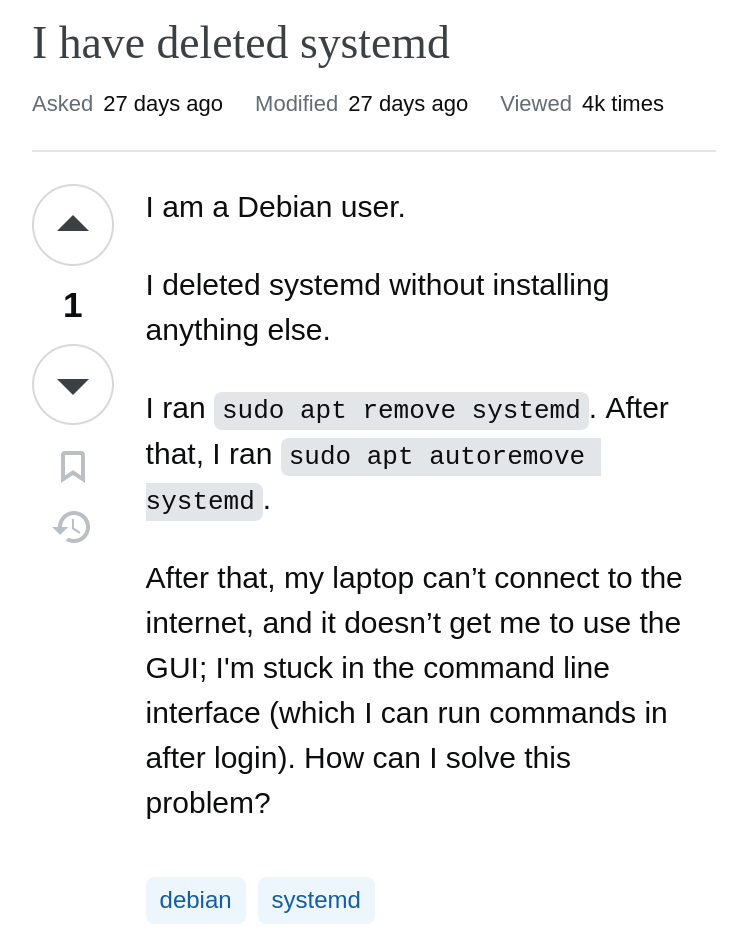this post was submitted on 19 Apr 2024
888 points (98.7% liked)
linuxmemes
21428 readers
713 users here now
Hint: :q!
Sister communities:
Community rules (click to expand)
1. Follow the site-wide rules
- Instance-wide TOS: https://legal.lemmy.world/tos/
- Lemmy code of conduct: https://join-lemmy.org/docs/code_of_conduct.html
2. Be civil
- Understand the difference between a joke and an insult.
- Do not harrass or attack members of the community for any reason.
- Leave remarks of "peasantry" to the PCMR community. If you dislike an OS/service/application, attack the thing you dislike, not the individuals who use it. Some people may not have a choice.
- Bigotry will not be tolerated.
- These rules are somewhat loosened when the subject is a public figure. Still, do not attack their person or incite harrassment.
3. Post Linux-related content
- Including Unix and BSD.
- Non-Linux content is acceptable as long as it makes a reference to Linux. For example, the poorly made mockery of
sudoin Windows. - No porn. Even if you watch it on a Linux machine.
4. No recent reposts
- Everybody uses Arch btw, can't quit Vim, and wants to interject for a moment. You can stop now.
Please report posts and comments that break these rules!
Important: never execute code or follow advice that you don't understand or can't verify, especially here. The word of the day is credibility. This is a meme community -- even the most helpful comments might just be shitposts that can damage your system. Be aware, be smart, don't fork-bomb your computer.
founded 1 year ago
MODERATORS
you are viewing a single comment's thread
view the rest of the comments
view the rest of the comments

Developer cognition is the most expensive resource on any programming project. It is entirely rational to stick to tried and true ways of doing things. A developer’s mind is generally at capacity, and putting some of that capacity into learning new tricks comes at the cost of all the other things that developer can be doing.
And it’s not just a matter of time. Generally speaking, a developer can only do so much mental processing between sleep cycles.
That’s not to say it’s always bad to learn new things. In fact one has to in order to keep the system working in a changing world.
But throwing shade at developers who hesitate to learn new things is foolish. I’d recommend every developer do shamatha and vipassana meditation so that they can more accurately monitor the state of their own mental resources. Those mental resources are the most valuable and most expensive resources on the project.